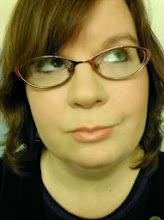- War and Peace – Leo Tolstoy
2. 1984 – George Orwell
3. Ulysses – James Joyce
4. Lolita – Vladimir Nabokov
5. The Sound and the Fury – William Faulkner
6. Invisible Man – Ralph Ellison
7. To the Lighthouse – Virginia Woolf
8. The Illiad and the Odyssey – Homer
9. Pride and Prejudice – Jane Austen
10. Divine Comedy – Dante Alighieri
11. Canterbury Tales – Geoffrey Chaucer
12. Gulliver’s Travels – Jonathan Swift
13. Middlemarch – George Eliot
14. Things Fall Apart – Chinua Achebe
15. The Catcher in the Rye – J.D. Salinger
16. Gone with the Wind – Margaret Mitchell
17. One Hundred Years of Solitude – Gabriel Garcia Marquez
18. The Great Gatsby – F. Scott Fitzgerald
19. Catch-22 – Joseph Heller
20. Beloved – Toni Morrison
21. The Grapes of Wrath – John Steinbeck
22. Midnight’s Children – Salman Rushdie
23. Brave New World – Aldous Huxley
24. Mrs. Dalloway – Virginia Woolf
25. Native Son – Richard Wright
26. Democracy in America – Alexis de Tocqueville
27. On the Origin of Species – Charles Darwin
28. The Histories – Herodatus
29. The Social Contract – Jean-Jacques Rousseau
30. Das Kapital – Karl Marx
31. The Prince – Niccolo Machiavelli
32. Confessions – St. Augustine
33. Leviathan – Thomas Hobbs
34. The Histories of the Peloponnesian War – Thucydides
35. The Lord of the Rings – J.R.R. Tolkien
36. Winnie-the-Pooh – A.A. Milne
37. The Lion, the Witch, and the Wardrobe – C.S. Lewis
38. A Passage to India – E.M. Forster
39. On the Road – Jack Kerouac
40. To Kill a Mockingbird – Harper Lee
41. The Holy Bible. Revised Standard Edition
42. A Clockwork Orange – Anthony Burgess
43. Light in August – William Faulkner
44. The Souls of Black Folk – W.E.B. Du Bois
45. Wide Sargasso Sea – Jean Rhys
46. Madame Bovary – Gustave Flaubert
47. Paradise Lost – John Milton
48. Anna Karenina – Leo Tolstoy
49. Hamlet – William Shakespeare
50. King Lear – William Shakespeare
51. Othello – William Shakespeare
52. Sonnets – William Shakespeare
53. Leaves of Grass – Walt Whitman
54. The Adventures of Huckleberry Finn – Mark Twain
55. Kim – Rudyard Kipling
56. Frankenstein – Mary Shelley
57. Song of Solomon – Toni Morrison
58. One Flew Over the Cuckoo’s Nest – Ken Kesey
59. For Whom the Bell Tolls – Ernest Hemingway
60. Slaughterhouse-Five – Kurt Vonnegut
61. Animal Farm – George Orwell
62. Lord of the Flies – William Golding
63. In Cold Blood – Truman Capote
64. The Golden Notebook – Doris Lessing
65. Remembrance of Things Past – Marcel Proust
66. The Big Sleep – Raymond Chandler
67. As I Lay Dying – Willilam Faulkner
68. The Sun Also Rises – Ernest Hemingway
69. I, Claudius – Robert Graves
70. The Heart is a Lonely Hunter – Carson McCullers
71. Sons and Lovers – D.H. Lawrence
72. All the King’s Men – Robert Penn Warren
73. Go Tell It on the Mountain – James Baldwin
74. Charlotte’s Webb – E.B. White
75. Heart of Darkness – Joseph Conrad
76. Night – Elie Wiesel
77. Rabbit, Run – John Updike
78. The Age of Innocence – Edith Wharton
79. Portnoy’s Complaint – Philip Roth
80. An American Tragedy – Theodore Dreiser
81. The Day of the Locust – Nathanael West
82. Tropic of Cancer – Henry Miller
83. The Maltese Falcon – Dashiell Hammett
84. His Dark Materials – Philip Pullman
85. Death Comes for the Archbishop – Willa Cather
86. The Interpretation of Dreams – Sigmund Freud
87. The Education of Henry Adams – Henry Adams
88. Quotations from Chairman Mao – Mao Zedong
89. The Varieties of Religious Experience: A Study in Human Nature – William James
90. Brideshead Revisited – Evelyn Waugh
91. Silent Spring – Rachel Carson
92. The General Theory of Employment, Interest, and Money – John Maynard Keyes
93. Lord Jim – Joseph Conrad
94. Goodbye to All That – Robert Graves
95. The Affluent Society – John Kenneth Galbraith
96. The Wind in the Willows – Kenneth Grahame
97. The Autobiography of Malcolm X – Alex Haley and Malcolm X
98. Eminent Victorians – Lytton Strachey
99. The Color Purple – Alice Walker
100. The Second World War (The Gathering Storm; Their Finest Hour; The Grand Alliance; The Hinge of Fate; Triumph and Tragedy) – Winston Churchill
For starters, I'm eliminating two works from this list: Lord of the Flies and Hamlet. The only reason for this is that I've read both of these books within the past two years. I'm more interested in reading new things than revisiting something I read so recently.
Now, to begin! I rolled the dice this evening and the first number up is... 19!
Catch-22 it is!
1

